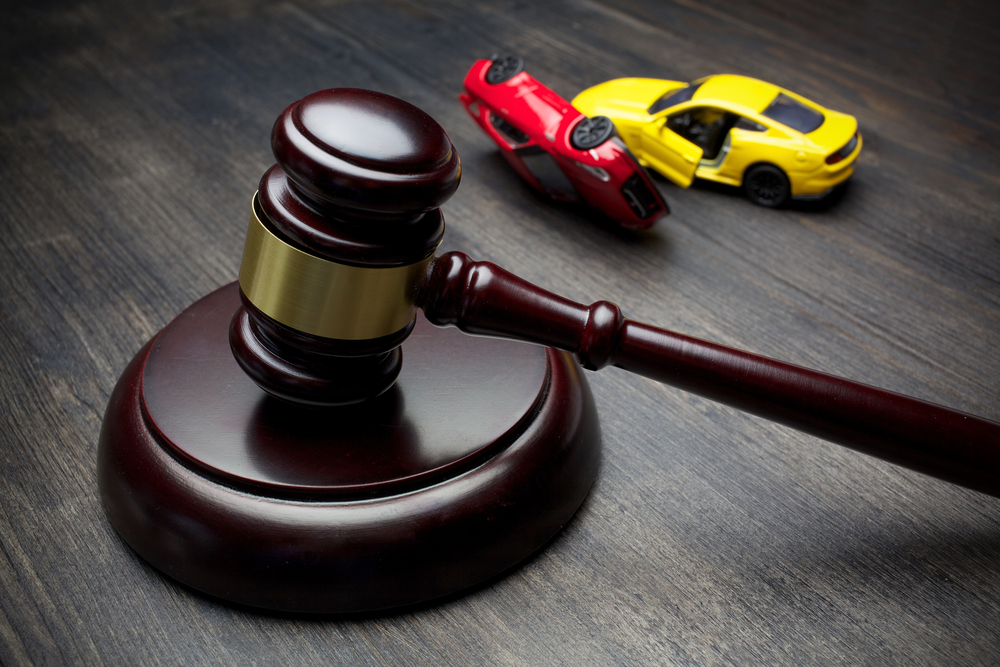 When you’re involved in a car accident, and the other party is deemed to be at fault, you will typically receive some sort of payment from that party’s insurance company to compensate you for damages to your vehicle and, in some cases, your person. However, oftentimes, the amount offered by the other party’s insurance provider is insufficient to cover the expenses you incur and the pain and suffering you endure as a result of the accident. In these cases, you may consider filing a civil suit. Here’s what you need to know about pursuing litigation after a car accident.
When you’re involved in a car accident, and the other party is deemed to be at fault, you will typically receive some sort of payment from that party’s insurance company to compensate you for damages to your vehicle and, in some cases, your person. However, oftentimes, the amount offered by the other party’s insurance provider is insufficient to cover the expenses you incur and the pain and suffering you endure as a result of the accident. In these cases, you may consider filing a civil suit. Here’s what you need to know about pursuing litigation after a car accident.
What Can You Be Compensated For?
As previously mentioned, the other party’s insurance will often pay you for repairs to or the replacement of your vehicle and may also pay for some of your medical expenses. However, an individual’s insurance plan will often have limits, and once the maximum payout for their insurance has been reached, you may find yourself paying for additional expenses out of pocket.
Oftentimes, expenses like ongoing medical care, physical therapy, and loss of income are not considered when calculating your insurance payout. And, if your insurance plan doesn’t pay for these items, you could find yourself in a difficult financial situation. If you choose to pursue civil litigation, these are the kinds of expenses for which you can request reimbursement. Additionally, you can sue for your personal pain and suffering, and if the person’s actions were unlawful or excessively dangerous, you may even be able to request penal damages (additional fees to deter the person from taking such action again).
Settling Out of Court
More often than not, civil lawsuits pertaining to car accidents are settled outside of court. One way to do this is to file a car accident claim with the other driver’s insurance company. You also have the option of filing the claim with your own insurance company. (Typically, if the other driver was at fault, your insurance provider will seek to reclaim any amount paid to you from the other party’s insurance company.) There is room for negotiation, even with this manner of settlement, and this is the most common way for car accident suits to be settled.
If you accept a settlement from the insurance provider, you’ll receive an agreed-upon amount of money and be asked to sign a release of liability. This is an agreement that states you surrender any right to pursue further damages from the party or their insurance provider.
Filing a Lawsuit
Filing a car accident lawsuit can be done at any time during settlement negotiations. In fact, filing a suit can provide some leverage for you during settlement negotiations. This shows the other party and/or their insurance provider that you’re serious about being compensated for damages incurred during the accident. Most insurance adjusters will avoid going to trial at all costs, so having a lawsuit already on file can provide the necessary pressure to reach an agreeable settlement amount.
If settlement negotiations do not go well, and you and the other party are simply too far apart to reach an agreement, then you will already have the initial paperwork on file with the court. This will help to speed up the process of taking the matter to court, and it keeps your options open throughout negotations.
Going to Court
If you cannot receive what you consider to be a fair settlement amount from the insurance provider, you can take the matter to court by filing a personal injury claim. Typically, this is done in small-claims court. If you’re asking for more than $5,000 in damages (this does not include filing fees, interest, or attorney’s fees), then you’ll need to go to civil court.
In a court hearing, you’ll need to be able to prove that the other driver was at fault, that the costs you’ve incurred are a direct result of the accident, and that you’ve suffered as a result of the accident. This is typically done through the use of police reports from the site of the accident, medical reports, receipts from repairs and medical bills, and personal testimony from you and any witnesses.
Though the vast majority of personal injury lawsuits—over 95%, according to the Bureau of Justice Statistics Bulletin—are settled outside of court, that doesn’t mean you don’t need a good attorney in your corner. A personal injury lawyer can help with all stages of negotiations, settlement talks, and court proceedings, if necessary. Contact us today to speak to an experienced personal injury attorney about you case.